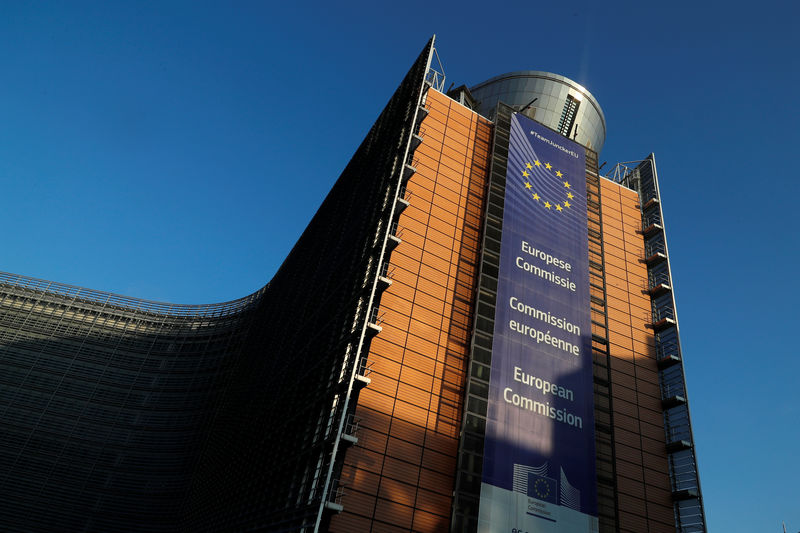(Bloomberg) -- The European Union rolled out an ambitious climate plan to transform every corner of its economy on Wednesday, and braced for years of tough negotiations to turn it into reality.
Every industry will be forced to accelerate its shift away from fossil fuels in order to cut pollution by at least 55% from 1990 levels by 2030. To achieve that, the bloc will bring new industries such as shipping into what’s already the world’s largest carbon market; ban new combustion-engine cars by 2035; impose new costs on dirty home heating; and force the aviation industry to emit less and pay more.
As the bloc seeks to position itself as a global leader on climate -- without damaging its own industry -- it also set out a blueprint for a levy on imports such as steel and aluminum from nations with softer environmental rules. That risks stoking trade tensions, with Russia, China and the U.S. in the EU’s sights.
There are already signs of discontent, from both EU members and industry.
“Nothing we presented today is going to be easy. It’s going to be bloody hard,” European Commission climate chief Frans Timmermans said. But he said the “existential threat which is the climate crisis” called for radical steps. He expects measures on transport, cars and home heating to cause the most complaints.
In Hungary, Prime Minister Viktor Orban’s government -- already embroiled in a standoff with Brussels over an LGBTQ crackdown -- flatly rejected the plan, saying it threatened to undo its signature utility price cuts.
“The European Commission’s choice of tools is untenable and unacceptable because it would lead to taxes on real estate and cars instead of making polluters pay,” Cabinet Minister Gergely Gulyas told reporters in Budapest on Thursday. “This would also destroy the results of utility price-cuts. Therefore, this proposal is unacceptable for Hungary in its current shape, and since unanimity is required the EU can’t implement this proposal.”
Massive Experiment
EU officials are at pains to emphasize that the transformation must be fair. The bloc has earmarked 72 billion euros ($85.1 billion) in a new fund to help compensate those who lose out, with the money --which is based on current prices -- coming from the expanded market for carbon emissions.
“Europe is tackling the climate crisis with urgency and optimism,” said Ignacio Galan, chairman and chief executive officer of Iberdrola (OTC:IBDRY) SA, the Spanish renewable energy producer.
The EU’s goals call for about 1.2 trillion euros of clean energy investment to 2030, according to Bloomberg NEF.
“We’re going to see an economy-wide experiment to put climate ambition into action,” said Simone Tagliapietra, a researcher at the Bruegel think tank in Brussels. “So far Europe has focused on a couple of sectors to cut emissions and now we’re really changing gear. Those measures will have a huge impact on the daily lives of families and businesses across Europe, with no exemptions.”
The impact on the rest of the world is more limited. Europe already accounts for a fraction of total fossil fuel use and the continent looks set to remain out in front on climate policies.
That’s why the bloc wants to introduce a levy on certain imports from countries with less strict climate rules. With its long phase-in period, many experts see it as an attempt by the EU to force others to change.
“Implementation could prove to be a logistical nightmare,” said James Whiteside, global head of multi-commodity research at Wood Mackenzie.
Carbon prices -- or the price of polluting -- initially jumped on Wednesday as the measures were rolled out, with more industries set to join the emissions-trading system. The price surged to records this year as financial investors piled in, leading to concerns that consumers will have to bear the cost.
The Commission’s plan to create a new emissions market for heating and road transport fuels is also set to become a divisive topic for member states. The rapid price increases in the current ETS have already led to complaints -- mostly from eastern European countries -- that the soaring costs will undermine their ability to invest in clean technologies.
“The proposal today is just the first chapter of the story,” Tagliapietra said. “We will see a lot of friction and tension over the next two to three years. Europe is set to become a global laboratory for deep decarbonization and the world will have an opportunity to learn how to achieve climate targets.”
Should you invest $1,000 in IBDRY right now?
Don't miss out on the next big opportunity! Stay ahead of the curve with ProPicks AI – 6 model portfolios powered by AI stock picks with a stellar performance in 2024.
Unlock ProPicks to find out